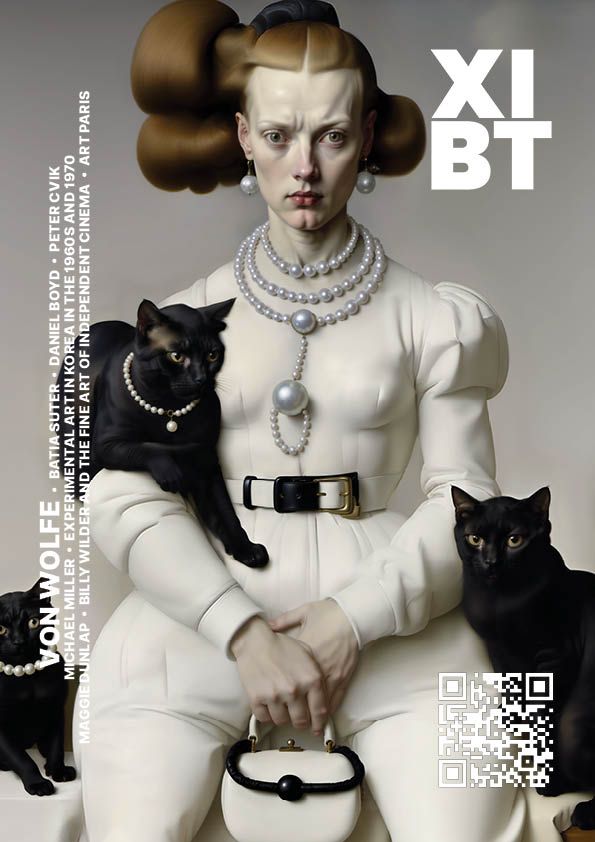Anicka Yi ‘The Art of Smell’
By Adela Smejkal
Art has many forms and many mediums, but the approach of Korean artist Anicka Yi is undoubtedly not one of the common ones. She is one of the artists that is elevating contemporary art to unprecedented levels drawing outside the standard accepted line.
Yi had the


Avezzù, Rondinella, Galli, Salvi – Courtesy: La Biennale di Venezia
And this is even more evident in the installation exhibited in the Central Pavilion, called Terra Incognita, where the artist combined soil from Venice with a specific bacteria that emits a peculiar smell. The panels of the work are controlled by Artificial Intelligence which changes light, temperature and water levels. The AI therefore learns every aspect of what is a living work of art, trying to understand its components, its phases of growth and decay and amends the environment accordingly.
Anicka Yi is undermining the relationship between the organic and the synthetic, science and fiction, human and non-human. On top of that, she likes to add to her works socio-cultural themes such as feminism, gender inequality or environmental degradation.

Avezzù, Rondinella, Galli, Salvi – Courtesy: La Biennale di Venezia

Avezzù, Rondinella, Galli, Salvi – Courtesy: La Biennale di Venezia
In just a decade of showing her art, Yi has established herself, without any former training, as an ‘artist’ through a self-directed study of science. Although she doesn’t consider herself fully as an artist nor a scientist, she is someone deeply interested in both fields but basing her artistic principles on the cultivation of other senses, telling a story with chemicals, and making the viewer do more than only to view. Among her artistic practice,

Avezzù, Rondinella, Galli, Salvi – Courtesy: La Biennale di Venezia
Unsurprisingly, the artist is attracted to contradictory non-traditional materials that don’t necessarily tend to become compatible with one another. The artist deploys unstable, volatile materials along with very stable industrial materials. She often makes use of elements that are alive or that were recently alive. For instance, she cultivates human-borne bacteria. In the past Anicka Yi has displayed live snails or deep-fried flowers. In her eyes, this sort of ‘shocking’ choice of materials creates the driving medium of the piece, which then serves as a narrative. Because her combinations are almost unorthodox, she relies on them to dominate and impose significance. The scent or the smell of the materials decomposing, or just co-existing, is then the ‘by-product’ of her artistic process.

Avezzù, Rondinella, Galli, Salvi – Courtesy: La Biennale di Venezia
The by-product then interacts with the audience in other than only visually. Yi’s mission is to cultivate other senses because our senses are conditioned through cultural and social circumstances and their power. It is a commentary on the contemporary, socially conditioned society. ‘You can train your nose to smell new things’ Yi says. The smell is an excellent example of how we are limited when it comes to exploring and developing new ideas and views. The fact of seeing a living matter and smelling it automatically triggers a precise thought process: ‘bad smell’ means danger, ‘good smell’ means positive things. Smell or scent is also a communication tool. And it is

Anicka Yi won the Hugo Boss Prize in 2016 with a piece focused on feminism, the gathering of femininity and female voices. While the show was coming together the planet was focused on the Ebola virus crisis, which ultimately undermined
Lately, the artist has also become concerned with the notion of artificial intelligence developing a virtual-reality piece, which focuses on the exploration of biotech and genetic engineering. She says that VR is going to be very much present in five years, similarly to what smartphones are nowadays. As well as the ideology behind her other pieces, VR and AI also have become a reoccurring debate in today’s cultural society and science. As well as this, Anicka Yi also belongs to the group of artists who

